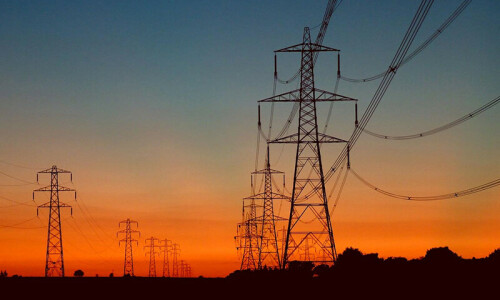KARACHI: Business leaders have cautioned that rising gas prices will push companies to the brink of failure due to increased production costs and surging inflation, even as they urge the government to enforce a nine-cent per kWh electricity rate immediately.
Acting President of the Federation of Pakistan Chambers of Commerce and Industry (FPCCI), Saquib Fayyaz Magoon, stated during a news conference on Wednesday at the Federation House that the world market is seeing a decline in export competitiveness as a result of historically high gas and power tariffs.
According to him, businesses were only paying 17 cents per kWh for electricity, while competitors in our area were receiving power for half that amount.
Since July 2018, the power purchase price has climbed by 95.82 percent, mostly as a result of the power tariff’s greater capacity component. According to him, the industry saw a 10% decrease in power generation last year, which raised the component’s per-unit cost.
Requests that the government reverse the increase in gas prices and announce a 9-cent power tariff.
Estimates, according to the acting head of the FPCCI, show that industrial customers will have to pay Rs244 billion in cross-subsidies in FY24. He said that cross-subsidization is unjust and illogical economically, and that it needs to stop in order to save commerce and industry.
Regarding the problems facing the gas industry, Mr. Magoon reaffirmed that the federal cabinet had earlier this month approved an enormous rise in the cost of gas, raising them by as much as 67 percent for domestic users and 700 percent for companies that produce fertilizer.
He stated that food inflation is anticipated to be greatly impacted by an increase in gas rates for fertilizer plants. Furthermore, the production of gas has decreased from 4,063 mmcfd in year 2012 to 3,505 mmcfd in year 2022.
Transmission of power
According to Asif Inam, chairman of the All Pakistan Textile Mills Association (Aptma), the nation has 47,000 MW of installed generation capacity, but only 28,000 MW of transmission and distribution capacity.
Take-or-pay independent power producers (IPPs) are placing a heavy financial strain on residential, commercial, and industrial customers.
While an additional 17,000 MW of generation capacity is being planned, the industrial sector’s electricity use has decreased by 25% as a result of exorbitant power prices. He said, “At moment when industrial manufacturing is no more feasible, where are we supposed to use this additional capacity?”
Adeel Siddiqui, President of the Hyderabad Chamber of Commerce and Industry (HCCI), noted that “we have a 55,000MW wind power corridor available to be tapped.” He was adamant about fuel adjustment costs, accusing them of being a tactic used to further squeeze energy users who make regular payments. He stated that because they were able to no longer afford energy, the 80pc bangles manufacturing had closed down.
SOURCE: DAWN NEWS








